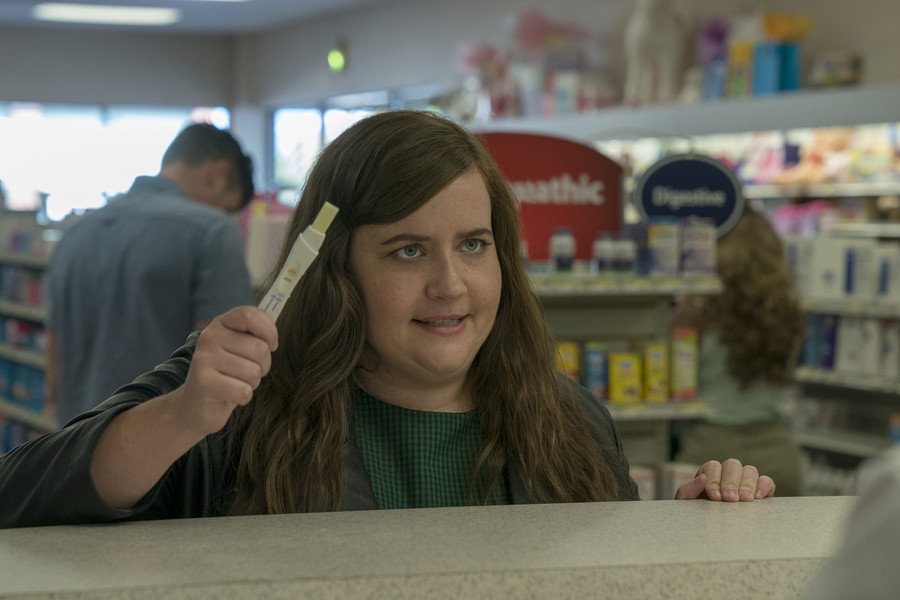This post may contain affiliate links. Affiliate links allow ComfyFat.com to earn commissions on products we recommend. All opinions are our own.
Content warning: This post is about anti-fat medical bias and mentions weight loss surgery and side effects, fatphobia, gossypiboma/textiloma/RFO, and there is a description of wound care.
When I was 17, I had my first surgery. It was to remove a cyst on my lower spine. Okay fine, it was actually my ass. I had an internal cyst that needed to be removed as it posed a threat to my tailbone and spine. Still vulnerable and catering to internalized anti-fat bias, I asked a doctor I trusted before surgery if this happened to me because I was fat. The doctor assured me that these kinds of cysts actually happen to a lot of young people, of all sizes. “We don’t hear much about them because it’s embarrassing for young people to talk about,” she said. I breathed easier knowing that this cyst and the fast approaching surgery was due to no fault of my own. It just happens. I felt a sigh of relief and anticipated nothing short of compassionate care going forward.
The surgery itself went fine, but what would I know, I was asleep for it. The recovery on the other hand was a nightmare. The healing process required another set of hands, so my mom became my personal care attendant for the following months. She took the cleaning and packing instructions very seriously. She used to be a nurse’s aide back in the day. But a week post surgery I ended up having a pretty gnarly infection that landed me in emergency care.
Cheers To A New Phobia
They found some gauze packed deep enough that anyone doing post-op care couldn’t have known it was there. They actually left gauze in me that they were supposed to remove before I left my initial surgery. I was lucky that the infection didn’t progress into a worse state. They removed the packing after loading me up with dilaudid. I didn’t feel a thing, which was great! But I do now have a fear of having objects left inside me during surgery. Because, well, it happened.
The Anti-Fat Medical Bias Moment
Due to the infection, my recovery time was delayed and I had multiple follow up appointments. For the most part, people treated me with grace and dignity, knowing that the check up always involved such a vulnerable area. It was only at my last follow up appointment when I was faced with that moment; the inevitable anti-fat medical bias moment. The doctor reported that my wound was in much better condition, and I was free. As I shook his hand and made my way to the door, he stopped me. He pointed to a graphic on the wall detailing gastric bypass surgery. “Have you ever considered weight loss surgery? You’d be the perfect candidate. Truly, it would be so good for you, and not everyone qualifies. Let me send you home with some information!”
Unfortunately at the time, it was 2009 and I didn’t have someone like Aidy Bryant aka Annie in Shrill to model an appropriate, confident, and liberated response. Seventeen years of being the fat kid meant that I wasn’t new to anti-fat trauma. I was new to advocacy. I didn’t know what to say, or how to respond. In my head I thought, “the cyst wasn’t even related to my weight, though.”
Completely out of ideas on what to say, I sunk into myself and said “No I hadn’t…(considered it).” I took the pamphlets home with me and did just that, I considered it. I read every terrifying detail. I couldn’t help but feel like every positive outcome sounded like a lie. As if they couldn’t be obtained without surgery and severely altering my body, first. The consequences sounded like living in a body that was in much worse condition than the body I was currently in. I felt uneasy about it, so much so that I couldn’t move forward with it. I’m so thankful for that. But it took me nearly 10 years to find words for why I felt so uneasy about this interaction in the first place.
He framed the question in a way that made me actually feel special. He sounded like he was saying I would have the privilege of accessing this procedure. Me, having privilege because of my body? That was something I hadn’t heard before.
At the time, I felt all kinds of complicated emotions. I felt shame, mostly. How could I have been so naïve, trusting my previous doctor who assured me that the cyst was unrelated to weight. I felt embarrassed, like I’d been blissfully unaware of what everyone was truly thinking of me throughout the process. I remember too, feeling disturbed about the tone of the doctor that day. He framed the question in a way that made me actually feel special. He sounded like he was saying I would have the privilege of accessing this procedure. Me, having privilege because of my body? That was something I hadn’t heard before. And that’s what makes me feel the most uneasy about this.
It turns out, this magical surgery he was trying to sell, isn’t so magical at all. The side effects and risks of pursuing such a drastic surgery would be life-altering and lifelong. The benefits didn’t outweigh the cons for me back then, and I’ve since questioned where he got the idea that they would. He was promising a 17 year old of a more fulfilling life.
What kinds of assumptions had he made about my quality of life that day? And with the list of risks and side effects associated with weight loss surgery, what qualifies as a “more fulfilling life?” Who defines quality of life? Acid reflux, chronic nausea and vomiting, leakage, hernias, gallstones, malnutrition, perforated stomach and intestines, dumping syndrome, ulcers, blood clots, and weight gain or inability to lose weight are all risks and side effects of weight loss surgery. But hey, as long as my body is smaller for a while, right?
As a body liberationist in training I feel revolted by this whole interaction between the doctor and my teenage self. And I feel deeply saddened for the youth that I was, just trying to make it out of this experience in one piece. My heart sinks when I think about even taking the paperwork home and reading up on it.
No Safe Spaces
Looking back, I realize this moment was a turning point for me when accessing medical care. I learned through processing the experience that I couldn’t trust doctors to treat me holistically. They will always see me as a fat person with “an obesity problem.” Some doctors will see that as a challenge to overcome, others will dismiss me as not worth their time. It will always be about my weight. Whether I came in about a weight related health concern or not. Their spaces are not safe. I will be more guarded. I will be more prepared.
It’s both insidious and manipulative the way the medical industry so easily utilizes a guise of authority to push anti-fat procedures on vulnerable people. In some cases, these authorities push children into pursuing a surgery that would essentially amputate a properly working organ. For what? How often do doctors suggest this life-altering surgery to people who didn’t ask? This doctor saw a fat kid, healthy and ready to get back to life, and treated it as an opportunity. And that makes me absolutely sick.
I mentioned Aidy Bryant and Shrill earlier because the show is what led me to share this story. The final season included a scene where the main character, who is fat, goes to a routine medical appointment and has nearly the exact interaction that I had with my doctor over 10 years ago. The doctor presumed that the main character was unhappy with her weight and presented weight loss surgery as an option. She offered this suggestion completely out of context, without expressed desire from the patient to pursue anything related to weight loss. I shared this story because the examples in Shrill detailing the fat persons experience are anything but exaggerated. These are not hyperbolic examples. They are right on point and they happen every day. Every freaking day. To every single one of us fatties.
I’m thankful to Aidy Bryant, and the author of the original memoir, Lindy West, and everyone involved in this show for putting together something so unique that the world can see. I’ve never seen my everyday struggles as a fat person so accurately represented. The more we talk about anti-fat bias, share the impact, and demand better of the people mistreating us, the closer we are to structural and societal change. Fat people deserve access to healthcare free of anti-fat bias and shame. We deserve to trust that our healthcare providers see us as human beings. We deserve autonomy.







No Comments